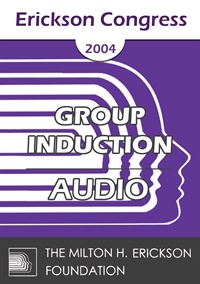
- Average Rating:
- Not yet rated
- Topic Areas:
- Group Induction | Hypnotic Induction | Hypnosis
- Categories:
- Erickson Congress | Erickson Congress 2004
- Faculty:
- Norma Barretta, PhD | Phillip Barretta, MA, MFT
- Duration:
- 43:06
- Format:
- Audio Only
- Original Program Date:
- Dec 03, 2004
- Short Description:
- IC04 Group Induction 02 - Irrational, Irrelevant and Irresistible Doubletalk: The Double Induction - Norma Barretta, Ph.D., Philip Barretta, M.A.
- Price:
- $15.00 - Base Price
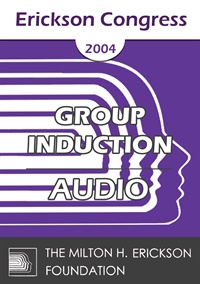
- Average Rating:
- Not yet rated
- Topic Areas:
- Group Induction | Self-Hypnosis | Trance | Hypnosis
- Categories:
- Erickson Congress | Erickson Congress 2004
- Faculty:
- Bernhard Trenkle, Dipl. Psych
- Duration:
- 59:38
- Format:
- Audio Only
- Original Program Date:
- Dec 03, 2004
- Short Description:
- IC04 Group Induction 03 - Self-Hypnosis Training as a First Trance Experience - The Lion Story - Bernhard Trenkle, Dipl. Psych.
- Price:
- $15.00 - Base Price
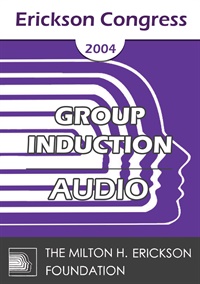
- Average Rating:
- Not yet rated
- Topic Areas:
- Group Induction | Storytelling | Happiness | Hypnosis
- Categories:
- Erickson Congress | Erickson Congress 2004
- Faculty:
- George Burns, MA, PsS
- Duration:
- 1:00:44
- Format:
- Audio Only
- Original Program Date:
- Dec 03, 2004
- Short Description:
- IC04 Group Induction 04 - Stories for Health and Happiness - George Burns, B.A. (Hons.)
- Price:
- $15.00 - Base Price
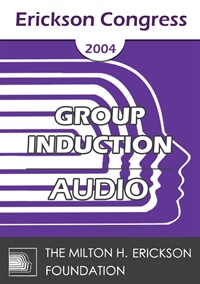
- Average Rating:
- Not yet rated
- Topic Areas:
- Group Induction | Hypnosis
- Categories:
- Erickson Congress | Erickson Congress 2004
- Faculty:
- Eric Greenleaf, PhD
- Duration:
- 1:01:46
- Format:
- Audio Only
- Original Program Date:
- Dec 03, 2004
- Short Description:
- IC04 Group Induction 05 - The Complete Walker: Preparing for Uncertainty - Eric Greenleaf, Ph.D.
- Price:
- $15.00 - Base Price
Tags: Group Induction Hypnosis
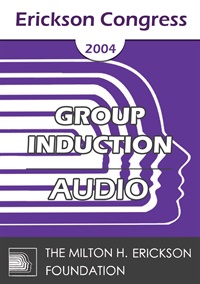
- Average Rating:
- Not yet rated
- Topic Areas:
- Group Induction | Hypnosis
- Categories:
- Erickson Congress | Erickson Congress 2004
- Faculty:
- Richard Landis, PhD
- Duration:
- 1:00:46
- Format:
- Audio Only
- Original Program Date:
- Dec 03, 2004
- Short Description:
- IC04 Group Induction 06 - The Bubble: Disconnecting History's Control and Increasing Choice - Richard Landis, Ph.D.
- Price:
- $15.00 - Base Price
Tags: Group Induction Hypnosis
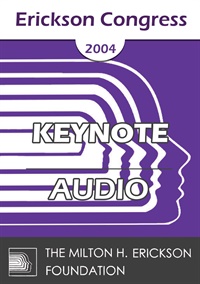
- Average Rating:
- Not yet rated
- Topic Areas:
- Keynotes | Neuroscience | Hypnosis | Psychotherapy | Genomics
- Categories:
- Erickson Congress | Erickson Congress 2004
- Faculty:
- Ernest Rossi, PhD
- Duration:
- 53:35
- Format:
- Audio Only
- Original Program Date:
- Dec 03, 2004
- Short Description:
- The implication of current research in neuroscience is that psychological experiences of novelty, enrichment, and exercise activate gene expression and brain plasticity (growth) in therapeutic hypnosis and psychotherapy. What does this mean for the actual clinical practice and rehabilitation as well as creative everyday living?
- Price:
- $15.00 - Base Price
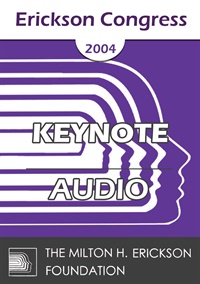
- Average Rating:
- Not yet rated
- Topic Areas:
- Keynotes | Consciousness | Naturalistic | Hypnosis | Trance | Generative Psychotherapy
- Categories:
- Erickson Congress | Erickson Congress 2004
- Faculty:
- Stephen Gilligan, PhD
- Duration:
- 1:03:54
- Format:
- Audio Only
- Original Program Date:
- Dec 04, 2004
- Short Description:
- The process of human growth and development occurs through a series of identity cycles. The transition from one identity level to the next is precipitated by extraordinary experiences, positive or negative in nature, that destabilize the ordinary state of consciousness. The result is a naturalistic trance or special learning state. If properly utilized, these trances lead to new, more evolved states of human being; but if not welcomed and received, violence and other forms of destructive pathology result. This address will examine this process in detail, and discuss implications for development at individual, group, and cultural levels.
- Price:
- $15.00 - Base Price
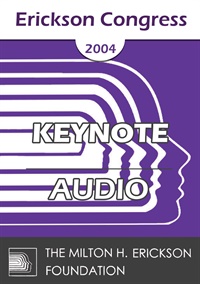
- Average Rating:
- Not yet rated
- Topic Areas:
- Keynotes | Hypnosis | Therapist Development
- Categories:
- Erickson Congress | Erickson Congress 2004
- Faculty:
- Jeffrey Zeig, PhD
- Duration:
- 58:49
- Format:
- Audio Only
- Original Program Date:
- Dec 05, 2004
- Short Description:
- Hypnosis is commonly thought of as a tool to enhance the therapy. It also can be used as a "lens." The phenomenology of hypnosis can help us to understand an essential aspect of the trance state, the symptom state, the solution state and the therapist's state, thereby providing new options for treatment.
- Price:
- $15.00 - Base Price
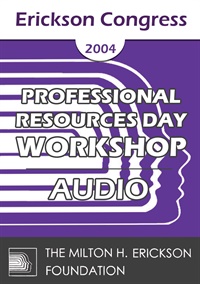
- Average Rating:
- Not yet rated
- Topic Areas:
- Workshops | Hypnosis | Naturalistic | Therapist Development
- Categories:
- Erickson Congress | Erickson Congress 2004
- Faculty:
- Camillo Loriedo, MD, PhD
- Duration:
- 2:01:56
- Format:
- Audio Only
- Original Program Date:
- Dec 01, 2004
- Short Description:
- In naturalistic hypnosis, the therapist's resources are essential for effective therapy. The way in which the therapist establishes rapport, using minimal cues, generally induces deeper, more durable changes than complex and sophisticated techniques. The therapist's emotions and isomorphic behaviors provide tools for accessing immediate diagnosis and therapeutic change.
- Price:
- $15.00 - Base Price
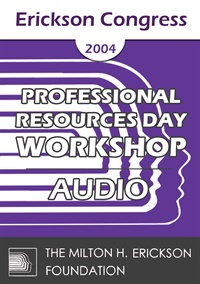
- Average Rating:
- Not yet rated
- Topic Areas:
- Workshops | Hypnosis | Therapist Development | Burnout | Self-Care
- Categories:
- Erickson Congress | Erickson Congress 2004
- Faculty:
- Robert McNeilly, MBBS
- Duration:
- 1:24:59
- Format:
- Audio Only
- Original Program Date:
- Dec 01, 2004
- Short Description:
- Too often out initial enthusiasm is diminished, replaced by resignation, dissatisfaction and burnout. Group discussion and individual exploration will help to clarify the passion that made participants become interested in their work. In a combination of conversations with other participants, group hypnosis and individual hypnosis this experience will become clearer and more vividly experienced. This will then allow for future experiences to be more readily accessible.
- Price:
- $15.00 - Base Price
Please wait ...

